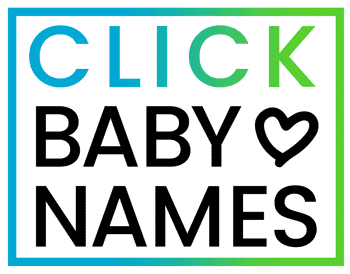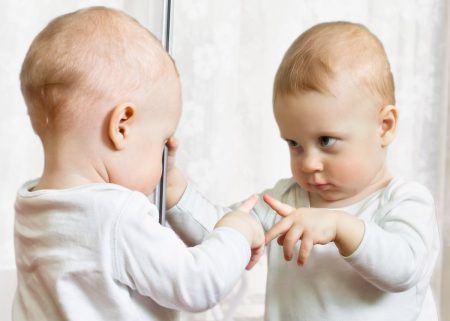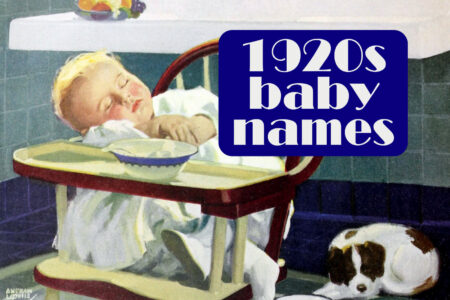Elegant Evelyn: Unveiling the allure of a timeless name
Evelyn is a name that has stood the test of time, remaining popular over the years for good reason. It has an old-world charm, yet it seamlessly fits into modern naming trends, making it a versatile choice for your baby.
Its rich history, straightforward pronunciation, and meaningful background make it a strong contender for any naming shortlist. Keep in mind the different variations and nicknames as you make your decision, as they can offer more personalized ways to call your little one.
Multiple meanings
The name Evelyn has multiple layers of meaning and origin, which contribute to its versatility and appeal.
- Hazelnut: Originally an English surname derived from the Old French aveline, meaning ‘hazelnut’, Evelyn has transcended its roots to become a beloved first name for both boys and girls, although it is predominantly used for girls today.
- Life: The name Evelyn can be considered a variant of Eve, which is derived from the Hebrew name Chavah (or Hawwa). In Hebrew, it’s linked to the root for life, thus giving Evelyn a meaning associated with “life.”
- Desired or beauty: The name is also sometimes associated with the Gaelic name Eibhlin, which is related to the older Aibhilin, or even older Avila. These names could possibly be derived from an Old Irish word meaning “desired” or “longed for,” as well as the word “oíph,” which means “beauty” or “radiance.”
- Island: In some interpretations, Eibhlin is linked to the Old Irish “oíb,” meaning “beauty,” and “inn,” meaning “island,” thereby giving it an association with “beautiful island.”
Star-studded representation
Evelyn has graced the silver screen and literary pages alike. Think of Evelyn Salt, the character played by Angelina Jolie in the movie “Salt,” or Evelyn Waugh, the English writer. There is also the classic body care products brand, Crabtree & Evelyn.
Its presence in popular culture adds a layer of familiarity and sophistication to the name.
Pronouncing Evelyn
Evelyn is generally pronounced as “EV-uh-lin,” rhyming with “heaven.” The pronunciation is fairly straightforward, which makes it easily recognizable and less likely to be mispronounced.
Variations and potential nicknames
Avelina: This is a Medieval English name believed to be derived from Old French ‘aveline’ meaning ‘hazelnut’. It has a historical charm and works well if you’re looking for something both unique and elegant.
Aveline: A French origin name that also means ‘hazelnut’, Aveline is the root from which the English name Evelyn is believed to have originated. It’s less commonly used today but has a classic, timeless appeal.
Evaline: Pronounced usually as “EE-vah-line” or “EH-vah-line”, this name is a less common variant of Evelyn. The spelling shifts the emphasis and can offer a unique take on the classic name.
Evalyn: A modern twist on Evelyn, Evalyn offers a more phonetic spelling. It retains the same classic feel but adds a contemporary edge.
Eveleen: Derived from Eve, this name often means “life” or “living”. It has an Irish origin and is less commonly used, making it unique yet recognizable.
Evelien: This is the Dutch form of Evelyn. It’s pronounced as “AY-veh-leen” and offers a European flair to the traditional name.
Evelin: This is a German and Hungarian variant of Evelyn. It’s usually pronounced as “EH-veh-leen,” and offers a slightly exotic twist on the classic name.
Evelina: A romantic and melodious extension of Evelyn, Evelina has roots in Latin and means “wished for” or “longed for child.” It adds a lyrical touch to the more straightforward Evelyn.
Évelyne: Pronounced as “EV-eh-leen,” this is another French variant of Evelyn. It has been popularized by James Joyce’s short story “Eveline,” and it carries a literary and cultured aura.
Evelynn: This is a modern Americanized version of Evelyn, often used when parents want to emphasize the “Lynn” ending. It’s typically pronounced the same way as Evelyn but offers a unique spelling variation.
Each of these variants brings its own flavor to the classic Evelyn, allowing for customization based on your personal preferences, cultural background, or the particular meaning you wish to emphasize.
Masculine and feminine
Evelyn started as a unisex name and can still be used for either gender, although it’s more commonly used for girls these days.
Nickname considerations
Evelyn offers the possibility of adorable nicknames. You might consider “Evie” (pronounced “EE-vee”) or “Lyn” for short. These nicknames not only shorten the name but also add a dash of playfulness.
History of the name Evelyn
Like so many feminine names, Evelyn comes from Aoiffe, whose more modern equivalent was Eva.
In early times, Aevin, or Evin, was occasionally found in the house of Kennedy, but Eveleen is by far the most common form of both names in Ireland.
Aveline, or Eveline, made their appearance among the Normans long before the marriage of the Earl of Pembroke.
Aveline was the name of the sister of Gunnar, the great-grandmother of William the Conqueror, and Aveline, or Eveline, was so a favorite a Norman name that it well suits the Lady of the Garde Douloureuse in the “Betrothed.”
Avelina de Longo Campo, as the name is Latinized in old chronicles, married the last Earl of Lancaster, and her daughter, the heiress Avelina, or Eveline, brought to her husband and his sons by a subsequent marriage, the great county of Lancaster, thus establishing the widespread power of the Red Rose.
An Eveline Elstove lived in 1539, but, though history faithfully chronicles her name, there is no record of her activities or explanation concerning the reason for her carefully preserved memory.
The name suffered a temporary eclipse in England in the early seventeenth century, but was revived in an ornamental fashion by Miss Burney’s “Evalina.”
Since then, its vogue has been unquestionable, but it would be difficult to say what affected influence brought about the change in spelling to Evelyn.
Etymologists insist that it should only be spelled with a “y” if it is meant to imitate the old French form of the Latin Avellana, meaning hazel.
Eveline is really a man’s name, and few women have used that form, preferring rather to employ Evelina, or Evelyn.
Cat’s-eye is Evelyn’s jewel. Its mysterious translucent depths, shot with green, indicates a vigilant charm against evil spirits and promises its wearer immunity from all harm. Thursday is her lucky day, and 6 her lucky number.







